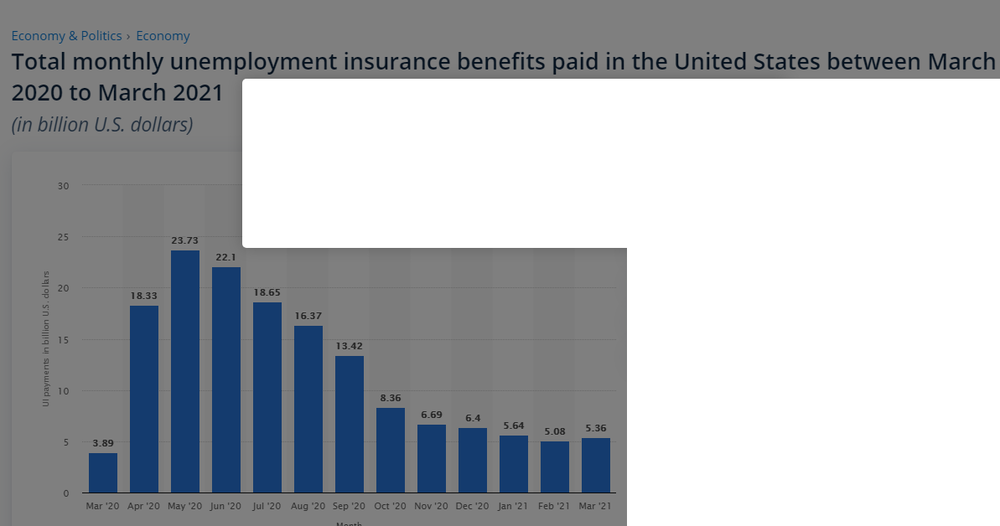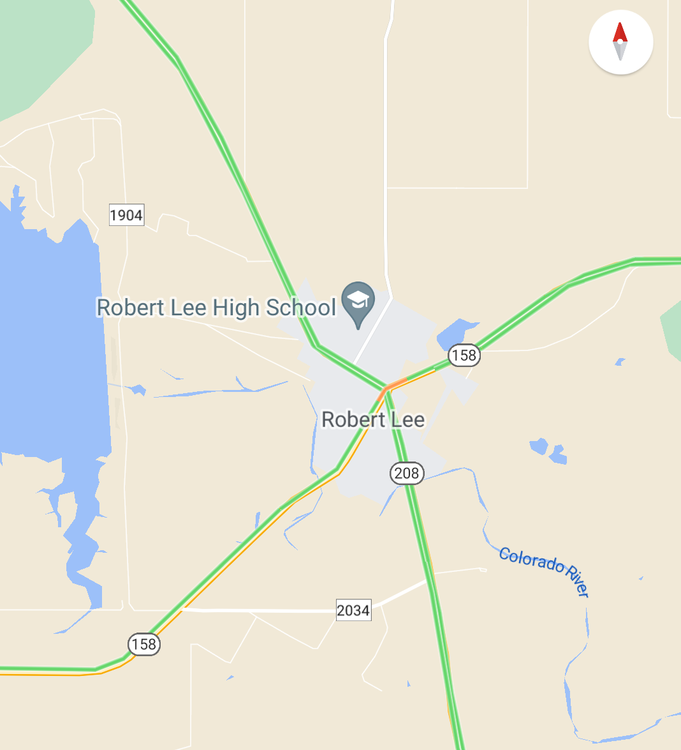Acc. to this graph (which doesn't account for a worse April), about 1.5% of American able workers were receiving unemployment in March, 2021. Now, about 4.1% of them are. That's a helluva lot more than .001%. There's still a lot more people receiving unemployment now (over double the amount) than when this started. Not even close.
(Sorry about the weirdness, I ripped off a screenshot without accepting cookies).
And, ff course the free money ("benefits") is the primary cause of the unemployment gap (which, as posted just above, is nowhere near where it was in Feb. 2020). A few excerpts: The largest business lobbying group in America on Friday blamed a $300-per-week federal jobless benefit for enticing Americans to stay at home and April’s far-weaker-than-expected jobs report.
“One step policymakers should take now is ending the $300 weekly supplemental unemployment benefit,” the lobbying group added. “Based on the Chamber’s analysis, the $300 benefit results in approximately one in four recipients taking home more in unemployment than they earned working." https://www.cnbc.com/2021/05/07/us-chamber-of-commerce-rips-300-jobless-benefit-calls-for-repeal.html
The only other factor cited is concern by people about looking for work due to fears of getting sick. But the labor force participation has increased by .2% over the last month, which means that more people are now looking - but not taking. I.e. they're passing over lower paying jobs (i.e. restaurants) for stuff like grocery and retail. This is probably why the job numbers shot up in March of this year - all those jobs were sucked up, and now you have the lowest paying ones that no one want. And certainly getting unemployment equal to or more than what people make in the restaurant industry will keep them home, at least for awhile.
There is no doubt whatsoever that the benefits have played a huge, huge part in the slowdown. Hell, Joey Boy mentioned it in his speech last week "Please don't stay on unemployment!"). It's a fact.
And my wife and I have been out to eat and for at least the last 5-6 times in a row, the service was way, way worse than normal. And clearly, without doubt, although the restaurants we've been in were far from crowded (in a few cases, almost crickets), it was totally obvious that they were barely staffed - 1-2 waitpeople in a room that usually has 5-6. And in one case they plainly told me that they only have "one cook working" tonight. Stuff like that.





